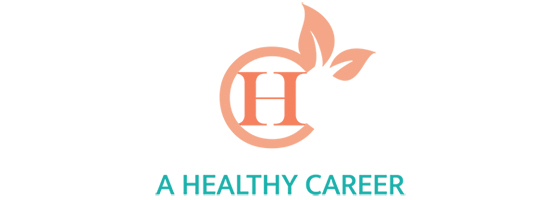It’s the week after New Year’s Eve and you’re ready to start fresh with some new resolutions. You’ve read everything the experts have to say and are ready to sit down and get started. Before you get started however I’d like you to take a few minutes and read this column. In it I offer a different slant on why resolutions work or do not work.
The word “resolution” is derived from the root “resolve” and means to solve by changing, converting, or dissipating. In the case of New Year’s resolutions what most people try to change, convert, or dissipate are bad habits or unhelpful behaviors. When you make a resolution to “start exercising” for example, you are also saying to yourself, “I want to stop being so sedentary.”
Another way to look at resolutions is to view them as the promise of new beginnings that set new directions for the coming year.
Regardless of what the so-called experts have to say about goals, most successful new beginnings start with setting goals and objectives that break tasks down into specific action steps. Viewing values-based New Year’s resolutions as goals that are capable of being measured through discrete action steps is a way to frame them to make them more attainable.
The biggest problem I’ve seen regarding New Year’s resolutions is that people often based them on guilt or what others think they should resolve to do.
Resolutions that are based on what other people value rather than what you value are doomed to fail. To counter this, I suggest you make resolutions that reflect your own values. Values-based New Year’s resolutions chart the course for the coming year based on your values and the direction you want to take. When you make New Year’s resolutions to please others you set yourself up for a miserable year filled with doubt, guilt, and stress.
When you plan a course of action based on your values and the direction you want to move in, you are taking steps to live the life you want and deserve. You don’t have to make resolutions about problem areas and the things in your life that are not working. You can make resolutions to improve parts of your life that are already doing well. Your resolution will revolve around strengthening these areas and making them even better. Why not start 2020 by resolving to enhance some aspect of your life that is already working?
To make values-based resolutions you need to spend a little time thinking about your values and how to use them to set goals that shape the direction you want your life to move in.
One simple way to identify your values is to construct your “perfect day.“ What criteria would you use for a perfect day that truly reflects your values? What kind of work would you be doing? Where would you be living? Who would you spend the day with? Other than work, what activities (read, write, cook, make love, etc.) would you engage in? The answers to these questions represent your daily life criteria (DLC) for a perfect day. They also reflect what you value most in life.
Instructions:
- List up to ten daily life criteria for a perfect day.
- What are the values these DLC’s reflect?
- What directions do these values move you in?
- How does your typical day compare to this perfect day?
- What is standing in the way of you meeting these criteria for having more perfect days?
I am grateful to Gregg Krech and Linda Anderson-Krech of the ToDo Institute in Monkton, Vermont for teaching me this activity and preparing me to share it with you.
After you clarify your values think about how you could combine them to create a direction you’d like to move in. For example, when I did this almost ten years ago most of my daily life criteria revolved around the beach, being outdoors, and scaling back the number of hours I wanted to work each day. This got me thinking about retiring early, moving, downscaling and cutting monthly expenses to be able to afford this lifestyle shift.
It is essential that you write your goals and objectives down. Make sure you divide your goals into objectives that you have a good chance of meeting. If your goals or objectives are too lofty you probably won’t meet them and this will create more stress.
One way to control this is to write measurable objectives. A measurable objective answers the question: “Who, will do how much, of what, by when?”
Example:
Goal: “Form my own new business.”
Objective: “By the end of March, 2020, I will have submitted all of the forms necessary to form my new business.”
The who in this objective is YOU, the how much is SUBMITTED ALL OF THE FORMS, the of what is TO FORM MY NEW BUSINESS, and the by when is END OF MARCH 2020. To assess your progress check back on April 1st and see if you submitted all of the forms.
Instructions:
Step 1. Pick one of the values you identified in the “A Perfect Day” activity.
Step 2. Describe how this value currently influences your professional and personal life.
Step 3. Write one personal or professional goal that is related to this value.
Step 4. Write three measurable objectives related to this goal.
Periodically (for example daily, weekly, or monthly) review the progress you’re making in meeting the objectives you set for reaching your goal. If you’ve written them correctly, all of your objectives should include a time frame.
After reviewing your progress it is okay if you decide to change the time frame or add or delete an objective. While goals and objectives help give your life structure and help you clarify your values, they should also be flexible enough to adapt to changes in your personality and your life.
I suggest that you start with a simple goal, something that you can accomplish this week and will help you start moving in the direction you want to go in. By keeping the goal simple and the time frame manageable, you have a good chance of accomplishing it.
Setting values-based goals is one of the many techniques I use to help people Rethink their stress. Rethink is one level of defense from my Five R’s of Conquering Your Stress program.
Dr. Rich Blonna has been helping people just like you conquer their stress and live values-based lives filled with passion and purpose–for 25 years. As a certified coach (CPC), counselor (NCC), and health education specialist (CHES), Dr. Rich has a been able to take the best from each of these helping professions and mold them into a unique approach to stress management. In addition to his coaching practice, Dr. Rich is a semi-retired Professor Emeritus from William Paterson University in NJ. He is a well-known stress management and sex expert. For information about Dr. Rich’s books, audios, home-study courses and, coaching go to his website

